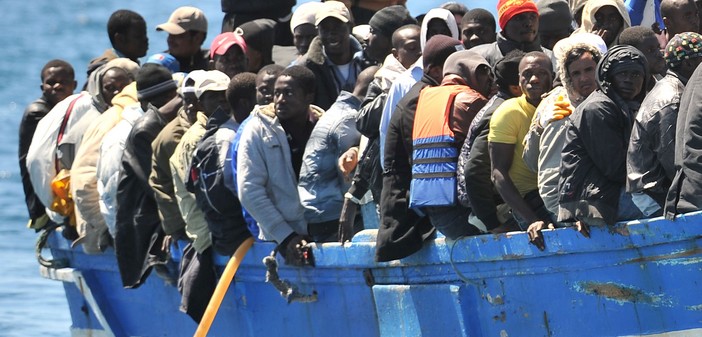Since the beginning of the year, 4,000 illegal migrants have been detected, which is double that of last year,” declared Christian Estrosi on Europe 1. The European Union’s proposal to establish quotas, “instead of cracking down” on these networks, is “completely absurd”.
Again, Christian Estrosi called for the creation of a force capable of sinking ships attempting to embark migrants and a “blockade with an air fleet and a naval fleet along the southern coasts”.
The Mayor of Nice likes strong statements and sometimes boasts: how can one imagine setting up an anti-trafficker military coalition? And why not also call in the U.S. Navy’s Sixth Fleet?
In fact, there will be no military coalition, and Christian Estrosi knows it well. So why talk about it if not just to flatter an almost fascist electorate?
However, the problem indeed exists: the Mediterranean cannot and must not be turned into a maritime graveyard for those seeking a land of asylum.
What can be done about this? There is no “miracle” measure, but a set of actions. This set would constitute the European asylum and immigration policy that is sorely lacking today.
First, urgently stop the drownings. By what means? Increase the maritime resources for rescue and prevent departures through increased ship inspections (operation “Triton” multiplied by 3).
Next, assess the phenomenon accurately. Immigration is, in itself, neither a blessing nor a catastrophe.
To start, one must not forget that it is a global phenomenon (Nigeria, South Africa, Australia, Rio Grande, etc.), not just European; 80% to 90% of displaced people are in the “South” countries. Pakistan hosts the largest number of refugees in the world.
The immigration figures in the European Union (EU) from outside the EU remain limited: around 1.7 million. There are 500 million Europeans, so these flows are manageable on a quantitative level. They are economically valuable to fill vacant unskilled jobs and very specialized positions.
The Commission’s proposal to decide annually on quotas by occupation, indexed to the economic needs and reception capacity of each country, is realistic and goes in the right direction.
Additionally, efforts should be made to dismantle the networks by tracing the entire chain, from the arrival countries to the recruitment countries.
Finally, the idea of a Marshall Plan for the benefit of Africa is often mentioned. It would be wise to follow through on these words, not forgetting the extremely promising African economic prospects. Thus, the number of African migrants should decrease over time.
It is well understood that this problem is politically and psychologically explosive in our feverish democratic societies: it becomes even more so when politicians use it as a propaganda tool and exploit emotions for electoral purposes.
by Garibaldino


